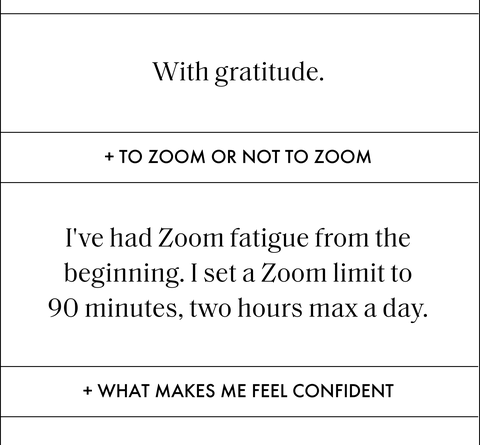How National Immigration Law Center’s Marielena Hincapié Is Shaking Up the Immigrant Rights Movement
In ELLE.com’s series Office Hours, we ask people in powerful positions to take us through their first jobs, worst jobs, and everything in between. This month, we spoke with Marielena Hincapié, executive director of the National Immigration Law Center. After immigrating as a child from Medellín, Colombia, to Central Falls, Rhode Island, Hincapié says her parents instilled in her a responsibility to make their new home a better place than when they first arrived. Hincapié has made that philosophy a priority at every point in her career. After studying criminal justice in college, she went into drug prevention work and educational outreach. Since 2000, she has worked for NILC—first, as a staff attorney, and now as executive director—defending and advancing the rights of low-income immigrants. Below, Hincapié on her favorite piece of advice, overcoming imposter syndrome, and how NILC is preparing for an “immediate shift” in the number of Ukrainian refugees.
My first job
I was 14, and the job was through a summer program for low-income, at-risk youth. I made minimum wage, which was $3.35 at the time. Because I was bilingual, I was placed at a local hospital. On my first day, I was rushed into a room where a woman was giving birth. I translated for the doctor, who was telling this woman that she needed to push. Then, she got whisked off for an emergency C-section. I learned how to think on my feet and deal with stress in a very rapid moment. All that on my first day of my very first job.
How my parents influenced my career
Both of my parents were immigrants. My father came over first, after being recruited by a textile factory to work in Rhode Island. My mother later followed him with the rest of the family. My parents were absolutely clear about a couple of things growing up. One was the importance of education as a pathway out of poverty. The other was that they had made a lot of personal sacrifices for us to have a better life in America. Part of our responsibility was to leave the country a better place than when we first arrived.
The legal case that changed my life
When I was working in San Francisco, I heard about a Mexican immigrant who was employed at a local insurance brokerage insurance company in Oakland. She was in jail because she had claimed unpaid wages. I was outraged. Immediately, I was like, “We should get her out of jail right away, and we need to sue her employer.” Her case took me down a path of focusing on the intersection of labor and immigration law—and particularly on undocumented immigrants who are being exploited and retaliated against. Four years later, I was recruited by the National Immigration Law Center.
The best career advice I received
When I first became executive director of the National Immigration Law Center, Antonia Hernandez, head of California Community Foundation, gave me two pieces of advice. The first was to invest in our board of directors. The second was to hire people who are smarter than me. By following her advice, I’ve been able to grow the organization from 20 people with a $2 million budget to 100 staffers with a $30 million organization.
My struggle with imposter syndrome
I was the first immigrant and first person of color to lead NILC. To be honest? It was really hard. It felt like I was being held to a different standard. I’ve learned over the years that I have a lot of issues with power. I struggle with imposter syndrome, constantly questioning and second-guessing myself. It has taken me a long time to really embrace my power, both as an immigrant and as a woman. Often times, I was the only person of color in meetings—and definitely the only immigrant. I feel that I have a responsibility to immigrant communities not only to lead our organization, but also help shape the direction of the immigrant justice movement from within.
Why we should be preparing for an increase of Ukrainian refugees
Some of the work that we, collectively, in the immigrant rights movement are absolutely focusing on is the increasing number of refugees, whether it’s immigrants and refugees coming from Haiti seeking safety in our country or from Afghanistan. At the National Immigration Law Center, we are monitoring the increasing number of refugees seeking safety—many now from Ukraine. We expect there to be an increase in the numbers coming to the U.S. It will obviously be a very immediate shift, but we do expect that to be the case.
This interview has been edited and condensed for clarity.
This content is created and maintained by a third party, and imported onto this page to help users provide their email addresses. You may be able to find more information about this and similar content at piano.io




